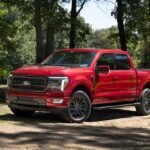It is concerning to see Tesla’s stock surge despite the company reporting its worst earnings in years. The fact that the surge seems to be based on Elon Musk’s misleading statements is even more troubling. Musk’s history of making bold claims that never come to fruition should not be ignored.
While Musk continues to push forward with his vision for the future of Tesla, including self-driving technology and humanoid robots, it is important to remain skeptical. Musk’s track record of overpromising and underdelivering raises red flags about the feasibility of his ambitious plans.
It is crucial for investors and consumers to critically evaluate Musk’s claims and hold him accountable for his statements. Blindly believing in Musk’s vision without concrete evidence to support his claims could lead to disappointment and financial losses.
As Tesla continues to navigate challenges in its auto business and faces brand damage, it is essential for Musk to focus on addressing these issues transparently and honestly. Misleading statements and false promises only serve to erode trust in the company and its leadership.
Electrek’s analysis of Tesla’s earnings call highlights the discrepancies between Musk’s claims and the reality of the situation. It is imperative for stakeholders to remain vigilant and demand accountability from Tesla and its leadership.
Ultimately, the surge in Tesla’s stock following poor earnings results should serve as a reminder to exercise caution and diligence when evaluating the company’s future prospects. Blind faith in Musk’s vision without critical analysis could have detrimental consequences in the long run.
As Musk continues to make bold claims about the future of Tesla, it is important for investors and consumers to approach these statements with a healthy dose of skepticism. Only time will tell if Musk’s promises will materialize or if they will join the long list of unfulfilled predictions.
For now, it is crucial to remain vigilant and hold Tesla and its leadership accountable for their actions and statements. Trust must be earned through transparency and honesty, not through empty promises and misleading statements.
Elon Musk, the CEO of Tesla, has been making bold claims about the advancement of Full Self-Driving (FSD) technology for years. Virtually every year for the last 6 years, he has stated early in the year that FSD would be ready by the end of the year. However, as the end of the year approaches, he often pushes the timeline to the following year, creating a cycle of unfulfilled promises.
Despite Musk’s repeated assurances, the data on Tesla’s FSD capabilities still falls short of the ambitious goals set by the company. While consumer vehicles with FSD can achieve about 500 miles between critical disengagements, a geo-fenced ride-hailing service would require tens of thousands of miles between disengagements. For generalized unsupervised driving solutions in consumer vehicles, the requirement is even higher, in the hundreds of thousands of miles. These discrepancies raise doubts about the feasibility of Musk’s claims.
It is perplexing that some individuals continue to take Musk’s predictions seriously, considering the lack of substantial progress in achieving truly autonomous driving. The reliance on Musk’s promises has led to a culture of blind faith among Tesla shareholders, who seem undeterred by the repeated delays and unmet expectations.
Tesla’s earnings calls have become a platform for Musk to reiterate his optimistic projections, often sounding like a broken record repeating the same promises year after year. The recent addition of humanoid robots to Tesla’s repertoire only adds to the spectacle of Musk’s grand visions for the future.
In the realm of Tesla’s stock price, fundamentals and earnings seem to take a backseat to investors’ confidence in Musk’s claims. The stock price serves as a barometer of shareholders’ faith in the company’s ability to deliver on Musk’s ambitious promises. Despite the skepticism surrounding Tesla’s FSD technology, shareholders continue to rally behind Musk, fueling the company’s valuation based on optimism rather than tangible results.
In conclusion, while Elon Musk’s vision for autonomous driving is undeniably ambitious, the gap between his promises and the current state of Tesla’s technology raises questions about the feasibility of achieving fully autonomous vehicles in the near future. As investors continue to buy into Musk’s narrative, the future of Tesla’s FSD technology remains uncertain, with the stock price reflecting a blend of hope and skepticism.







